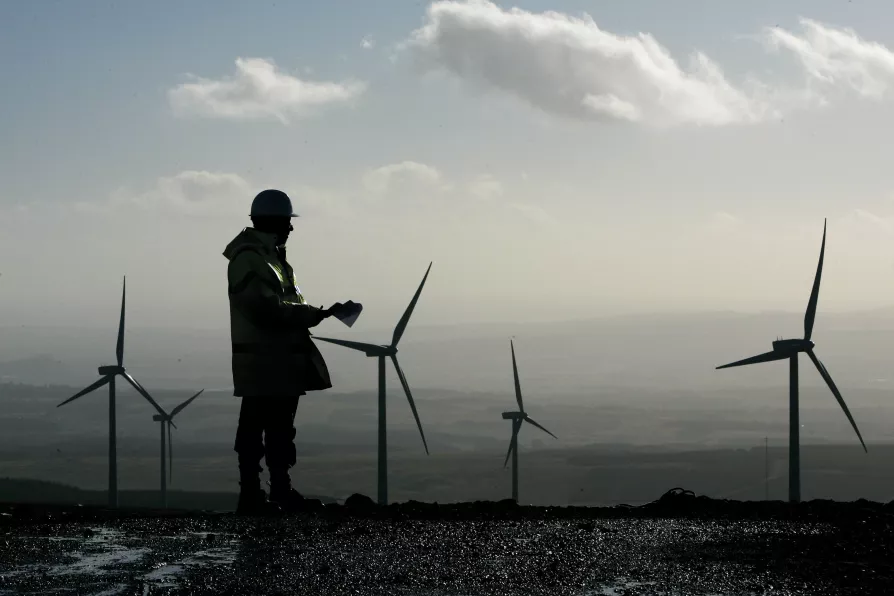The PM says Mandelson 'betrayed our values' – but ministers and advisers flock to line their pockets with corporate cash, says SOLOMON HUGHES


YOU could almost touch the euphoria of an election outcome that comprehensively ditched the Tory government. Park any anxieties about what lies ahead. For Labour, 14 years has been a long wait in opposition.
So, the crooks are gone and the clean-up can start.
Ditching “Rwanda” and appointing James Timpson to oversee prison reform were instant examples of how compassion and common sense can underpin a different approach to governance. There will be many more “inclusive” gestures that Labour can draw on. But a transformative Labour government will need much, much more if it wants a mandate for a second term.
I’m not saying this to be awkward. The hundreds of new Labour MPs, still working out where to hang their coats, know that their landslide majority — based on a lower turnout and fewer votes than Labour lost with in 2017 and 2019 — constitutes a fragile platform in volatile times.
Myths and distractions
External commentators already warn that there is no money for all that Labour wishes to do. This is nonsense. It is a myth wrapped in the narrow economics the Tories used to trash the economy. Money isn’t the problem. Those looking for serious change should just look at Labour’s 1945 approach to credit creation and national reconstruction.
By the end of World War II, Britain’s debt: GDP ratio was a colossal 270 per cent. But rather than opting for austerity measures, the 1945 Labour government instructed the Bank of England to create the credit needed to rebuild the domestic economy. Universal education, state pensions, council housing and the foundation of the NHS were all paid for in this way. Rather than breaking the country, it is what built Britain’s post-war economy.
By investing in our own renewal, Britain was able to repay itself, year on year, and cutting the debt: GDP ratio to 50 per cent by 1970.
Today’s Labour government must do the same, but from within a completely different mindset. To do so now requires a rejection of the two great contemporary follies.
Boeing, Boeing, gone
The first folly is exemplified in Boeing’s agreement to plead guilty to “criminal fraud” following the crashes of two of its 737-Max planes. The needless loss of life in both disasters has been put down to a shift in Boeing’s management culture.
“Profit maintenance” displaced “safety maintenance” at the core of Boeing’s business. One by one, financial advisers replaced engineers in Boeing’s management hierarchy. Dividends and bonuses had to land safely even when the planes couldn’t.
This is disaster capitalism. And those giving evidence before the US Department of Justice inquiry have insisted that engineers, not speculators, are put back in control of the company. But the same obsessions currently underpin Britain’s privatised water, rail, housing and (many) health activities.
In each case, the ethical disintegration goes back to Margaret Thatcher’s obsession with shifting Britain’s politics from production economics into (deregulated) financial capitalism. Money isn’t the problem; casino economics is.
Today, Labour inherits a Treasury mindset obsessed with playing footsie with the FTSE. It is a game Labour can never win. Instead, the government must begin to close all the loopholes that currently allow the likes of Amazon’s Jeff Bezos to earn millions while paying nothing in taxation.
If Margaret Thatcher could sequestrate the miners’ funds by chasing them all around the planet, a Labour government should do the same to those shifting wealth around the globe in tax avoidance scams.
At the same time, it would be good to see the Treasury calling time on all the tax allowances offered directly and indirectly to the fossil fuel sector. For too long, the whole sector has been a benefits-dependant part of the British economy; with “windfall taxes” regularly being outstripped by “development grants’, “cleanup allowances” and “research assistance.” All the current “energy saving obligations” currently levied on renewable energy must be transferred onto the non-renewable parts of Britain’s energy economy.
The clock is ticking
If Labour wants to build a more resilient future the most urgent task is to avoid falling off the climate cliff. Time is of the essence. Nothing captures the urgency more clearly than the Carbon Brief graph showing the pace at which Britain must phase out gas if it is to meet its 2030 “clean power” obligations.















